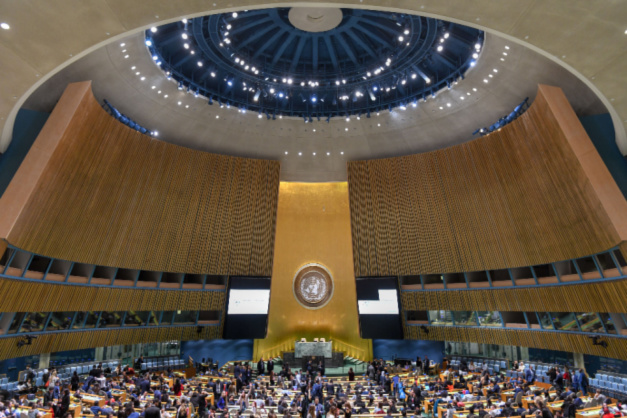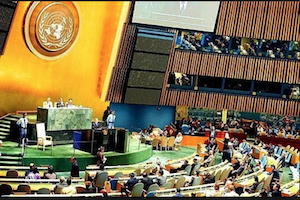Uzbekistan Between Ukraine and Russia: The Curse of Positioning
By Farkhod Tolipov
May 31, 2022
Russia’s war in Ukraine has become an existential geopolitical challenge for all former Soviet republics. Uzbekistan’s formulation and expression of a position on the war has been difficult in an ethical and political sense. Positioning on this matter is also a serious test for the strategic partnership and unity of Central Asian states. At the UNGA, Uzbekistan did not vote on the resolution blaming Russia for aggression against Ukraine. However, it voted against the exclusion of Russia from the UN Human Rights Committee. Uzbekistan’s MFA later brought some clarity to Tashkent’s position, which could potentially irritate Moscow. The curse of positioning reflects the enduring and perplexing geopolitical status-quo in Central Asia.

UNGA Adopts Resolution on Strengthening Cooperation in Central Asia
By Batir Tursunov
September 5, 2018, the CACI Analyst
At its June 22, 2018, plenary session, the UN General Assembly adopted a resolution on “Strengthening regional and international cooperation to ensure peace, stability and sustainable development in the Central Asian Region.” According to Uzbekistan’s Foreign Ministry, all UN members unanimously supported the draft document, developed by Uzbekistan along with other Central Asian states.

The Nagorno-Karabakh conflict at the center of Russia-Armenia relations
By Erik Davtyan
May 13th, the CACI Analyst
The unprecedented escalation of the Nagorno-Karabakh conflict on April 2-5 is the topic of a process of intense discussions between Russian and Armenian authorities. After the Chiefs of Staff of Armenia’s and Azerbaijan’s armed forces, Yuri Khachaturov and Najmaddin Sadigov, reached an oral ceasefire agreement in Moscow, Russia immediately activated its policy toward the conflict, including several high-level visits to Yerevan and Baku for discussions with the respective authorities.
Building on Kerry's Central Asian tour
By Richard Weitz
December 22nd, 2015, The CACI Analyst
In early November, John Kerry made a long overdue trip to Central Asia, becoming the first Secretary of State to visit all five Central Asian countries in one diplomatic tour. His agenda focused on reassuring the regional governments that the United States cares about their concerns, specifically Afghanistan and religious extremism. Kerry also highlighted U.S. support for region-wide economic integration, ecological protection, and cultural and humanitarian cooperation. He further developed bilateral cooperation with each Central Asian government. However, there were no major agreements or blockbuster initiatives announced during Kerry’s visit. It will require sustained follow-through by the current and next U.S. administrations to achieve enduringly positive results.





